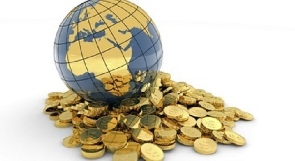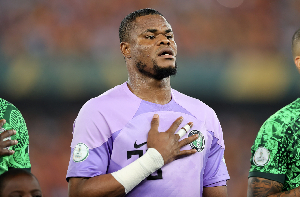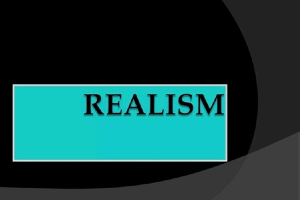Ghana, as a matter of fact, is underdeveloped largely due to the habitual lack of care by the successive administrations since regaining independence from the British on 6th March 1957.
With all due respect with no attached condescension whatsoever, the NDC loyalists must take a deep introspection and accept the painful fact that their leaders dreadful errors in judgement over 27 years unfortunately sent Ghana’s economy deeper and deeper into the mire.
It is well documented that the founders of NDC needlessly deposed an elected government on 31st December 1981 and ruled despotically for 11 years.
It is an open secret that the rabble rousers shamefully supplanted power at the time when Ghana’s economy was blossoming steadily in 1981.
Apparently Dr Hilla Limann of blessed memory and his PNP government were hitting the ground running and therefore there was no need for anyone to disturb the ambiance.
The Limann government assumed office after the NDC founders first coup d’état in 1979, at the time when the economy was in deep crisis. The credit lines to the country had almost dried up and were blocked due to brutalities and confiscations at the harbours and other points of entry into Ghana by the coup making founders of the NDC.
However, the story is told, somewhat poignantly, that through careful negotiations, preparations and the implementation of pragmatic policies and programmes, the Limann government managed to arrest the economic challenges.
More importantly, commendable efforts were made to repay Ghana’s short-term debts, and, the Limann government demonstrated the ability to meet Ghana’s debt obligations.
Consequently, Dr Limann’s government managed within 18 months and restored virtually all traditional credit lines (Source: PNC).
But despite all the great efforts, the NDC founders did not give Dr Liman and his PNP government the breathing space to govern the country, as they relentlessly breathed down the neck of President Limann.
As a matter of fact, the coup making founders of NDC kept criticising Dr Limann’s administration for what the conspiratorial plotters perceived as economic mismanagement, until the geezers decided to depose Dr Limann.
The coup makers imposed themselves and despotically ruled the country for over 11 years before retiring from the military and forming the National Democratic Congress (NDC) and bizarrely metamorphosed into civilian government in 1993.
The coup enthusiasts governed for further 8 years before voting out of power in December 2000.
The fact however remains that the coup making founders of NDC 19 years rule largely destabilised Ghana’s macroeconomic indicators.
Take, for example, the inflation rocketed astronomically to over 40%, stunted economic growth and incredible debt stock, which placed Ghana in a Highly Indebted Poor Country (HIPC) status.
Consequently, former President Kufuor prudently embraced the HIPC status in April 2001.
It is well-documented that “during the year 2001, just before the NPP administration took over, debt as a percentage of the GDP was not only unsustainably high and crippling but also deprived Ghanaians from money which could have been used for needed developmental and social projects”.
The fact though, is, the benefits of the HIPC were “unprecedented during the Kufuor’s regime from (2001-2008).
Macroeconomic indicators begun to stabilize and Ghana’s debt stock was significantly reduced by about $4 billion within that period (BOG).
There were Rapid infrastructural developments as well as social and policy reforms. Ghana was then moved from an HIPC economy to a middle income economy (Mutaka Alolo, 2012).
By the end of 2008, Ghana's economy had been quadrupled to GH 28 billion, a period of eight years under the NPP administration. The average GDP growth of the NDC from 1993-2000 was 3.8% while that of the NPP from 2001-2008 was5.2% with economic growth reaching 6.3% in 2007 (Daily Guide, 2016).
The late President Mills took over from President Kufuor on 7th January 2009.
It is worth emphasising that the late President Mills was extremely fortunate to have inherited a very good economic foundation laid by the effervescent President Kufuor and his equally hard working team.
Take, for instance, three years after former President Kufuor’s NPP government had discovered oil in commercial quantities, the late President Mills had the joyous task of turning on the valve at an offshore platform in December 2010 to pump the first commercial oil.
Lo and behold, Ghana joined the petroleum exporting countries. Believe it or not, Ghana started to export crude oil and thus boosted the economic growth.
The economy grew from around 8.4 per cent to around 14 per cent by 2011 and Ghana thus reached the Lower Middle Income status.
The late Mills improved upon Ghana’s economy by raising the GDP to GH47 billion by 2011.
Regrettably, however, the late President Mills capitulated, got carried away and somehow allowed the create loot and share cabals in his government to have their way. The incompliant cabals began to dip their ‘thievery’ hands into the national coffers.
The conspiratorial plotters even managed to allocate judgement debt amount in the national budget (purported to be around GH600 million), with the sole objective to create, loot and share.
There were numerous undeserving judgment debt payments, including the $30 million judgement debt payment to the Waterville, the dubious $325,000 to ISOFOTON, GH51.2 million to Woyome, and a lot more reported to be totalling a staggering GH800 million.
Unfortunately, things started to fall apart. It went from bad to worse following President Mills sudden and mysterious death in July 2012.
The previously single digit inflation and budget deficit doubled astronomically. The GH9.5 billion debt which former President Kufuor and his NPP government left in 2009 rocketed artificially to unpronounceable figures. Our total debt ballooned to GH122.4 billion as of December 2016.
The late Mills left a sound economic growth of 14% and Mahama reversed it to 3.4%, the late Mills left the agricultural growth of 7.4% and Mahama dragged it to 2.5%, the late Mills single digit inflation was reversed to 15.4%, GDP of GH47 billion shrunk to GH40 billion by Mahama.
So who says that the NDC tradition has never done any harm to Ghana’s economy?
K. Badu, UK.
k.badu2011@gmail.com
Opinions of Wednesday, 25 January 2023
Columnist: K. Badu, UK
Who says NDC is the better custodian of Ghana’s economy?
Entertainment














